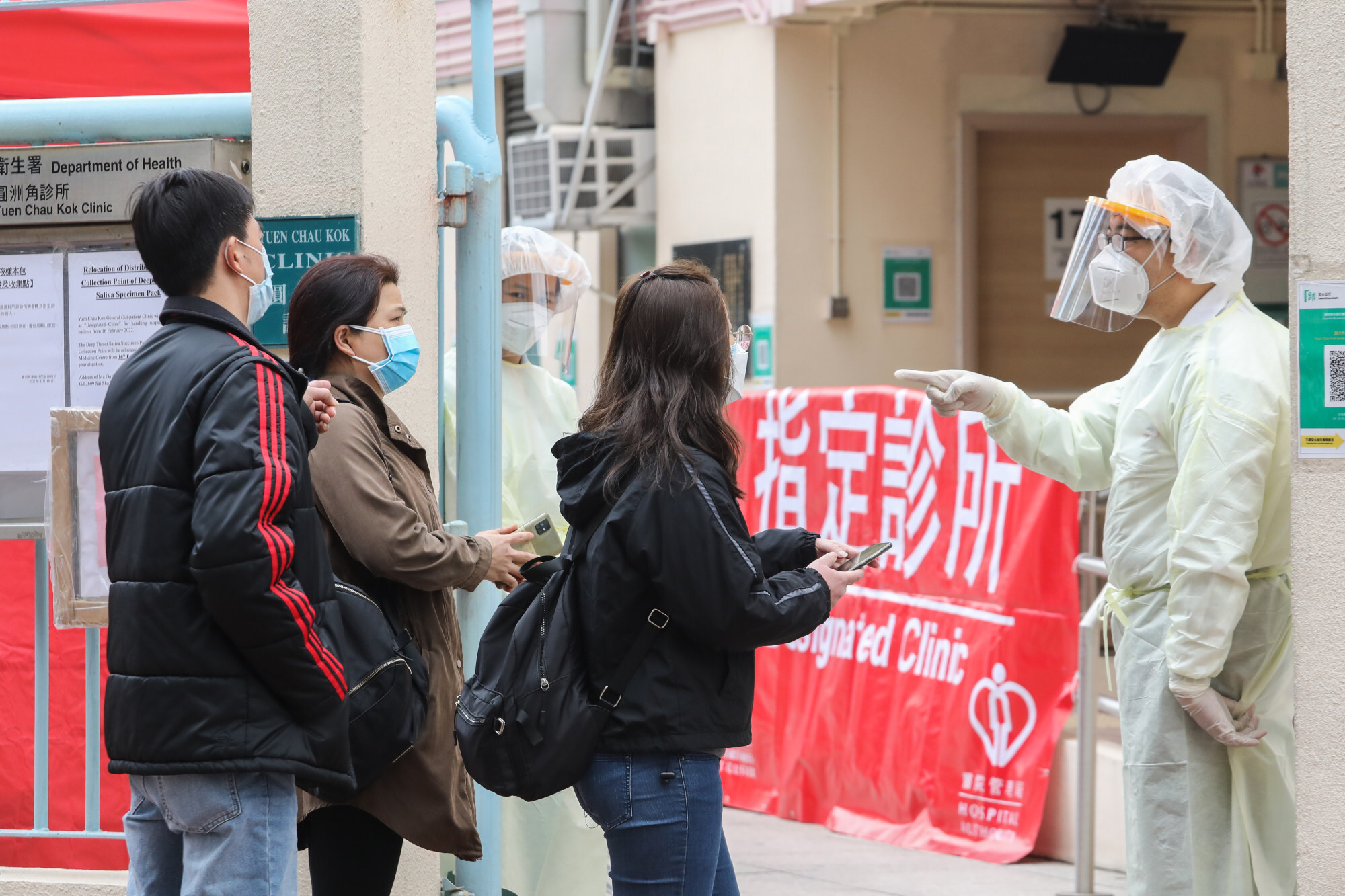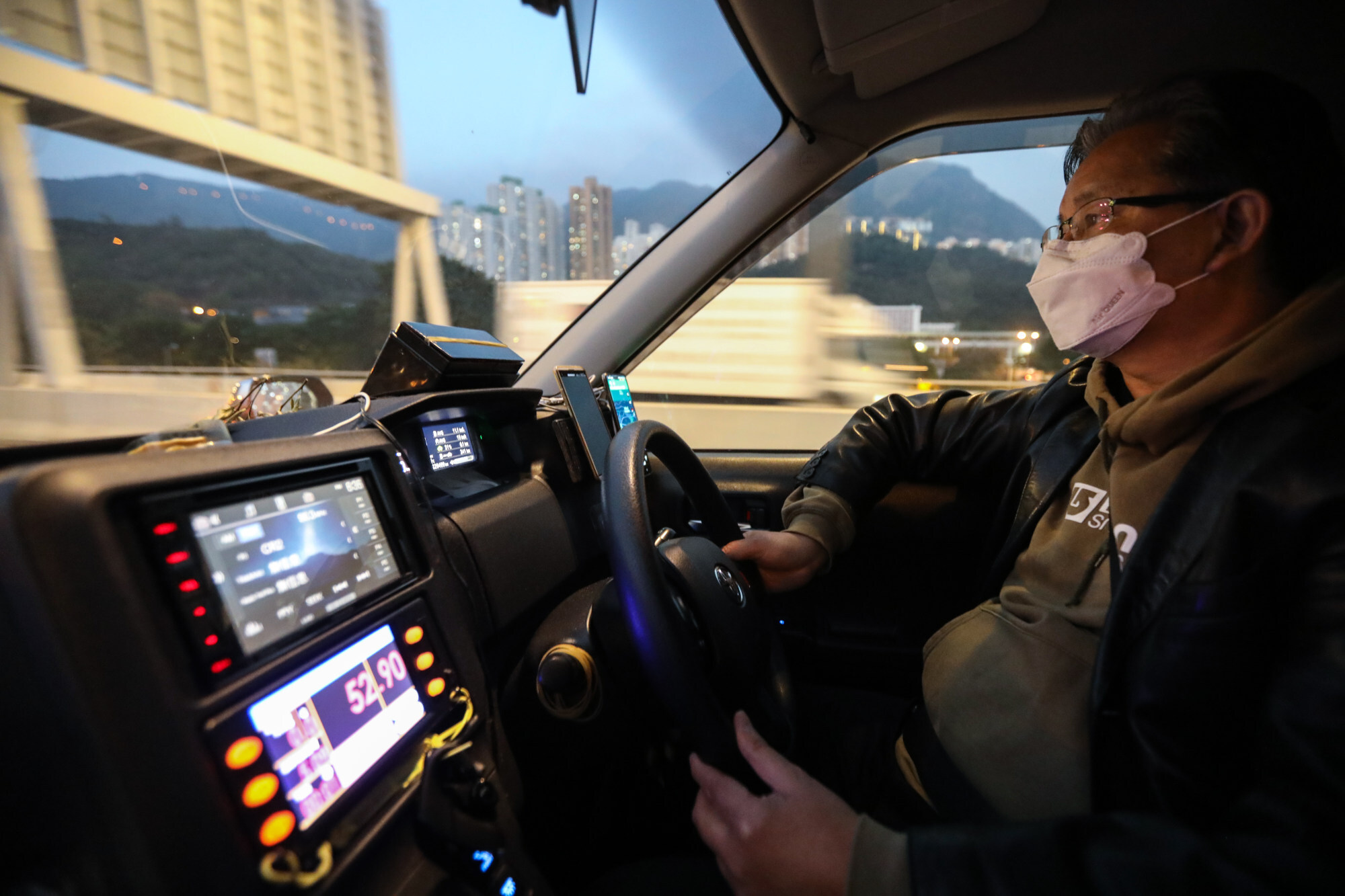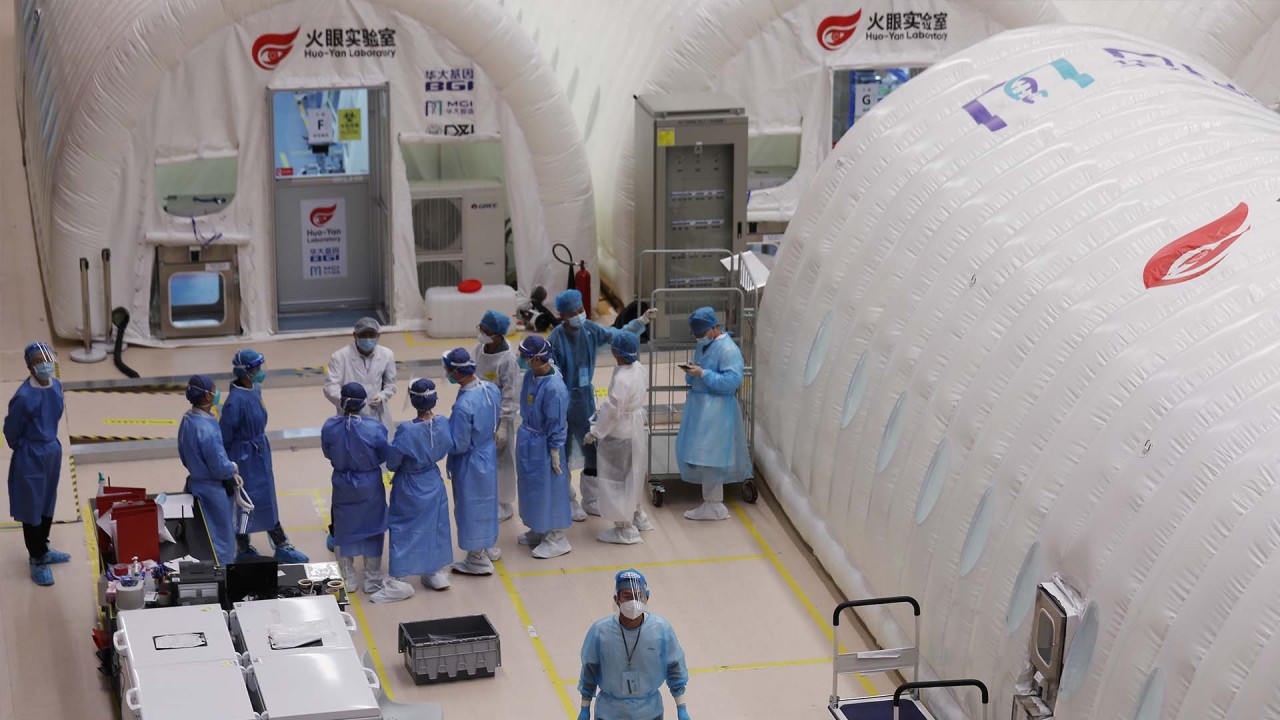
Coronavirus: ‘anti-epidemic’ taxi service for Covid-19 patients in Hong Kong to begin on Friday, with drivers set to earn HK$3,000 a day
- About 300 such taxis mobilised to provide free transport services between designated clinics and homes of Covid-19 patients with mild symptoms
- Drivers to receive protective gear and will only accept patients who have made appointments at designated clinics
The Transport and Housing Bureau said on Wednesday evening a designated fleet of about 300 taxis would provide free transport services from Friday for Covid-19 patients with mild symptoms to travel between designated clinics and their homes. It added the number of taxis would be adjusted according to the actual demand.
Transport officials also started dispatching protective gear supplies, including masks, goggles and gowns, to the taxi drivers on Wednesday.
The Hospital Authority has also activated seven designated clinics to help provide diagnosis and treatment for those with mild symptoms of infection while awaiting hospital admission.
The move comes amid a surge in local coronavirus case numbers, with at least 10,000 people waiting to be admitted to hospital and thousands more expected to join the list every day. As of Tuesday, about 12,000 patients were still waiting at home for admission to hospitals or other facilities.
“Patients should visit the designated clinics by designated taxis as far as possible. The government will provide operators and drivers of the designated fleets with anti-epidemic guidelines,” a bureau spokesman said.
“The designated fleet will only transport those with appointments made with the designated clinics, and will not pick up other passengers. Specific labels will be affixed on the taxi bodies for identification.”
Under the scheme, the designated cabbies, who provide service from 9am to 6pm on a weekly schedule, must wear protective equipment, including face shields, masks and gowns.
They need to fully disinfect the interior of the vehicle before they start work and after every trip.

Drivers also have to take a daily rapid antigen test and only those who have tested negative for the virus can provide these services.
To reduce infection risks, passengers must sit in the back and avoid contact with the driver while all the windows will be kept open to maintain air circulation.
“The government thanks the taxi industry for organising the designated fleet service on short notice to provide safe and reliable point-to-point transport services for patients in this difficult time,” the spokesman said.

Cabby Ng Kwok-ying, 63, who has signed up for the scheme, said industry leaders told him he would receive a government payment of HK$3,000 per day and he had to work for seven straight days subject to a weekly renewal.
“I signed up for this scheme because the pay is really attractive. It’s for survival,” he admitted. “Besides, I have weighed the risks and many patients just have mild symptoms. As long as I have fully adopted the preventive measures, I think I will be all right.”
Ng said his monthly income could reach more than HK$20,000 (US$2,600) during the second half of last year as the pandemic situation eased, but that was reduced to about HK$4,000 with the onset of the fifth wave of infections.
The driver said he also wanted to help transport the patients to receive treatment at the government clinics.
“We’ve been through a very tough time in 2020 and now I think the health risks are not as serious as before. I hope … to help the patients as much as I can,” he said.
Ng, who lives with his 54-year-old wife and 30-year-old daughter, has decided to stay in a hotel for now to avoid infecting his family.
“My biggest concern is about my family and I don’t want to implicate them in case I also get infected. For the sake of their safety, I will stay in a hotel during this period,” he said.
Yuen Yeung-wai, chairman of Taxi Dealers and Owners Association, said it was reasonable for these designated drivers to receive more pay as they faced a very high risk of infection.
“The scheme is a good thing as these designated taxi drivers provide services for Covid-19 patients despite the infection risks. I hope this scheme can eradicate people’s bias about taxi drivers,” he said.


